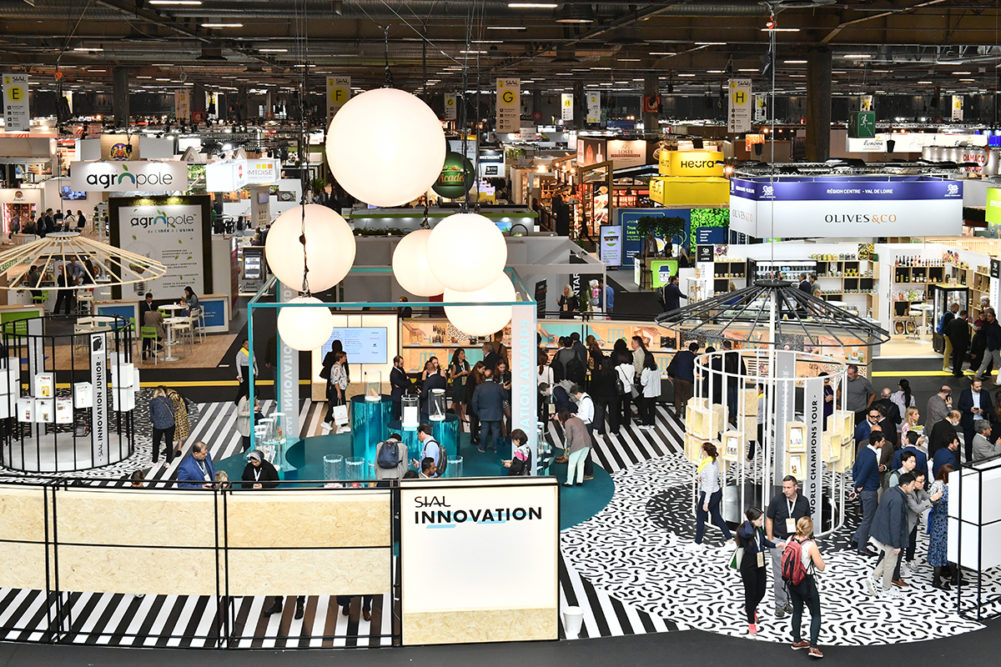CHICAGO — The global food industry is reinventing itself to meet current and future challenges by developing sustainable and healthier products with new ingredients and packaging technologies. SIAL Paris 2024, held Oct. 19-23, offered attendees insight into the future of global food innovation.
Coinciding with the biennial expo was the publication of SIAL Insights, a study developed in partnership with the market researchers the Kantar Group, ProtéinesXTC and Circana. The research focused on consumer expectations, trends in food innovation, and trends in out-of-home catering and retail on a global scale.
The research showed that 70% of global consumers think cooking at home is a good way to reduce spending. This is often a cook-from-scratch approach, as there has been a clear decline in prepared and processed food purchases.
“Reducing the cause of the consumption slump to inflation alone would be a mistake,” said Emily Mayer, business insights director at Circana. “Structural factors like demographics and growing concerns around health and the environment also play a part.”
Consumer attraction to private label retailers, such as Aldi and Lidl, complements the consumer trends toward “hyper-simplification.” Fewer products on the shelves translates to fewer products in the shopping cart. Another trend is just-the-right-size packages, which contributes to reducing costs and food waste.
Global consumers also are spending on snacks to satisfy their sensory cravings. The global rise in the popularity of bubble tea serves as an example. The beverage provides a play on flavor, color and texture. The experience now extends into homes with personalized brewing kits.
The SIAL survey also showed that nearly one in four respondents are fond of dishes defined as traditional. The trend is driving the success of recipes for home-cooked dinners and products that tell a story and contribute to the preservation and evolution of the craft. As a result, some food brands are relaunching products using past formulations and making such claims as “original recipe.”
The future of food
SIAL Innovation is a global innovation contest affiliated with the trade show that received more than 1,000 applications this year. Next-generation plant-based was a dominant theme.
Grapeful, Beirut, Lebanon, received accolades for its hummus bar, which is a new way of eating the popular chickpea dip and spread. The formula makes hummus available on-the-go in a variety of flavors, including pistachio-cardamom and tahini-orange blossom.
Speaking to the trend of preparing dinner at home, the company Sabarot Wassner, Chaspuzac, France, developed a dry mix for home cooks to make their own plant-based meats. There are three varieties: quinoa and bulgur with vegetables, Indian lentils, and split peas with basil. The range also speaks to consumers who want to consume more vegetables.
The SIAL Innovation judges recognized Sabarot Wassner’s new product for its “ease of preparation” — It can be prepared in eight minutes.
After developing a plant-based egg, Yumgo, Paris, also is using the ingredient to manufacture thaw-and-serve vegan sweet treats for foodservice. The frozen line includes cookies, brownies and cakes.
King Konjac of Finland developed zero-carbohydrate, gluten-free sushi bites. The company uses konjac, a root vegetable, to make a low-calorie, low-carbohydrate rice alternative. The product comes preformed to serve as a base for sushi. It is high in fiber and provides a similar eating experience to white rice, which is a high-glycemic grain associated with causing diabetes when consumed on a regular basis, according to the company. The konjac alternative offers foodservice operators the opportunity to position some menu items in the segment of healthier, low-carbohydrate food offerings.
On the packaging side of innovation, Enia Foods, Larisa, Greece, received accolades for its paper bottle olive oil. The bottle is made from 94% recycled cardboard and features a food-grade lining. It is five times lighter than glass and has a carbon footprint up to six times lower than traditional containers, according to the company.
“In spite of the rising cost of living and a difficult global context, consumers are increasingly taking action for better food and for the environment,” said Karin Perrot, food expert director for Kantar. “Although they don’t always act on their beliefs — what’s known as the value-action gap — they want innovation. All of this creates opportunities for the industry to explore these promising and virtuous trends.”

